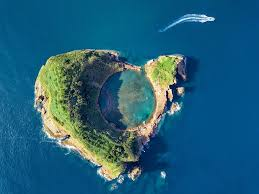Introduction
The story of Atlantis has fascinated humanity for centuries. From ancient texts to modern movies, the mythical city submerged beneath the sea continues to capture imaginations worldwide. But what is Atlantis? Is it merely a legend, or could there be a grain of truth behind the tale? Let’s dive deep into the enigma of the Lost City of Atlantis and explore whether it’s a myth, a reality, or perhaps a blend of both.
The Origins of the Atlantis Legend
Plato’s Account of Atlantis
The story of Atlantis originates from the works of the ancient Greek philosopher Plato. In his dialogues “Timaeus” and “Critias”, written around 360 BCE, Plato describes Atlantis as an advanced civilization that existed around 9,000 years before his time. According to Plato, Atlantis was a powerful and prosperous island nation located “beyond the Pillars of Hercules.”
Key Features of Atlantis
Plato painted a picture of a utopian society brimming with technological advancements, sophisticated architecture, and unparalleled wealth. The Atlanteans were described as morally upright at first but became corrupted by greed and hubris. As divine punishment, the gods submerged Atlantis beneath the sea.
Analyzing the Myth: Fact or Fiction?
Was Plato Telling the Truth?
Many scholars believe Plato’s account of Atlantis was purely allegorical a cautionary tale about the dangers of hubris and moral decay. However, others argue that the detailed description suggests he may have been referencing a real place.
Atlantis in Context
The story of Atlantis fits into a broader tradition of flood myths and lost civilizations found in cultures worldwide. From the biblical tale of Noah’s Ark to the Mesopotamian Epic of Gilgamesh, human history is replete with stories of cataclysmic events that destroy entire societies.
Possible Locations of Atlantis

Santorini (Thera)
One of the most popular theories places Atlantis in the Aegean Sea, specifically on the island of Santorini. Around 1600 BCE, a massive volcanic eruption devastated the Minoan civilization, leaving a caldera that some believe could be the “sunken city.”
The Azores

Located in the Atlantic Ocean, the Azores archipelago has been considered another potential site. The islands’ underwater topography and location align with Plato’s description of Atlantis being “beyond the Pillars of Hercules.”
The Sahara Desert
A more recent theory suggests that Atlantis was actually located in the Sahara Desert, in an area known as the Richat Structure or “Eye of the Sahara.” This geological formation bears striking similarities to Plato’s description of concentric rings of water and land.
Antarctica

Another theory posits that Atlantis could lie beneath the ice of Antarctica. This hypothesis gained traction due to ancient maps, like the Piri Reis map, which appear to depict Antarctica’s coastline before it was covered in ice.
Modern Explorations and Discoveries
Advances in Underwater Archeology
In recent decades, underwater archeology has revealed submerged cities and settlements worldwide, such as the ancient city of Heracleion off Egypt’s coast. These discoveries show that catastrophic events have indeed submerged advanced civilizations in the past.
Technology’s Role
Modern technologies like sonar mapping, satellite imaging, and AI-driven exploration have opened up new possibilities for uncovering lost civilizations. Could these tools one day locate Atlantis?
Cultural Impact of the Atlantis Legend
Literature and Art
From Jules Verne’s “Twenty Thousand Leagues Under the Sea” to Disney’s “Atlantis: The Lost Empire”, the legend of Atlantis has inspired countless works of fiction. It remains a symbol of mystery and human ambition.
New Age Movements
In modern times, Atlantis has taken on a mystical aura, with some believing it was a hub of spiritual knowledge and energy. New Age proponents often link Atlantis to concepts like crystal energy and ancient wisdom.
Could Atlantis Be a Memory of a Real Event?
Tsunamis and Ancient Disasters
Natural disasters like tsunamis, earthquakes, and volcanic eruptions have shaped human history. Events such as the eruption of Mount Vesuvius or the destruction of Pompeii bear eerie similarities to Plato’s description of Atlantis’s sudden demise.
Ice Age Sea Level Rise
During the last Ice Age, melting glaciers caused global sea levels to rise dramatically, submerging vast coastal regions. Could Atlantis have been one of these lost lands?
Debunking the Myth
Lack of Evidence
Despite centuries of exploration, no definitive evidence of Atlantis has been found. Critics argue that this absence suggests the story was purely fictional.
Interpretative Challenges
Plato’s dialogues were written in a philosophical context. Interpreting them as literal history may be a misreading of their purpose.
Why Does Atlantis Captivate Us?
The Allure of the Unknown
Atlantis represents the ultimate “what if?” scenario. Its mystery tantalizes our imaginations and keeps us questioning the boundaries of history and myth.
Hope and Cautionary Tale
Atlantis embodies both a utopian ideal and a cautionary tale about human hubris. It’s a mirror reflecting our aspirations and fears.
Check: The Four: The Hidden DNA of Amazon, Apple, Facebook, and Google (Hardcover) eBook Review
Conclusion
The Lost City of Atlantis continues to straddle the line between myth and reality. Whether it’s an allegory, a distant memory of a real event, or a tantalizing mystery waiting to be solved, Atlantis challenges us to look deeper into history and ourselves. Perhaps its greatest legacy is the enduring sense of wonder and curiosity it inspires.
FAQs
1. Did Atlantis really exist?
The existence of Atlantis remains unproven. While some theories suggest it could be based on real events or locations, others believe it’s purely a philosophical allegory created by Plato.
2. Where is Atlantis thought to be located?
Possible locations include the Mediterranean (Santorini), the Atlantic Ocean (Azores), the Sahara Desert (Richat Structure), and Antarctica.
3. Why is Atlantis important?
Atlantis serves as a symbol of advanced civilization and a cautionary tale about the dangers of moral corruption and environmental catastrophe.
4. Have any underwater cities been discovered?
Yes, cities like Heracleion off the coast of Egypt have been discovered. These findings prove that ancient civilizations have indeed been submerged.
5. What modern tools are used to search for Atlantis?
Technologies like sonar mapping, satellite imaging, and AI-driven exploration are being used to investigate potential sites for Atlantis.


